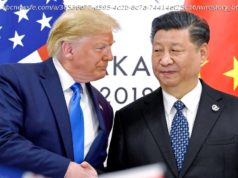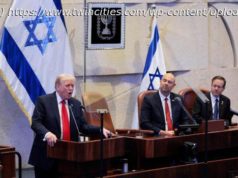As multiple investigations into Russian involvement in the 2016 elections hang like a cloud over Washington, the current US political drama often reads like a spy novel.
« Mr. Sessions, are you familiar with what spies call ‘tradecraft’? » Cotton asked, adding « Do you like spy fiction? John le Carre? Daniel Silva? Jason Matthews? »
Sessions quickly added to Cotton’s list.
« Alan Furst. David Ignatius, » he said. « I just finished Ignatius’s book. »
A bestselling novelist and journalist, Ignatius has penned nine novels and one work of nonfiction. His most recent book, « The Director, » tells the fictional story of Graham Weber, a CIA director tasked with saving a compromised agency. It’s a movie-ready tale of cybercrime, strategy and deceit.
While Ignatius may be recognized on The New York Times’ Top 10 list of the year’s best books, Alan Furst is hardly a household name. Best known for his 14-book « Night Soldiers » series, Furst was one of the first successful American spy novelists. His work focuses on pre-WWII Eastern Europe — from stories about a Bulgarian fishing town to a Moscow spy academy.
Cotton didn’t stop there.
« Do you like James Bond or Jason Bourne movies? » he asked.
« No, » Sessions joked, before admitting, « Yes, I do. »
When asked by Cotton whether the collusion of a sitting US senator and a foreign ambassador would ever appear in one of these « fantastical situations, » like a clandestine meeting at the Mayflower Hotel, Sessions used another literary reference to demonstrate what he sees as the ridiculousness of such a theory.
« Thank you for saying that, Sen. Cotton, » Sessions said. « It’s just like ‘Through the Looking Glass.’ I mean, what is this? I explained how, in good faith, I said I had not met with Russians. »






